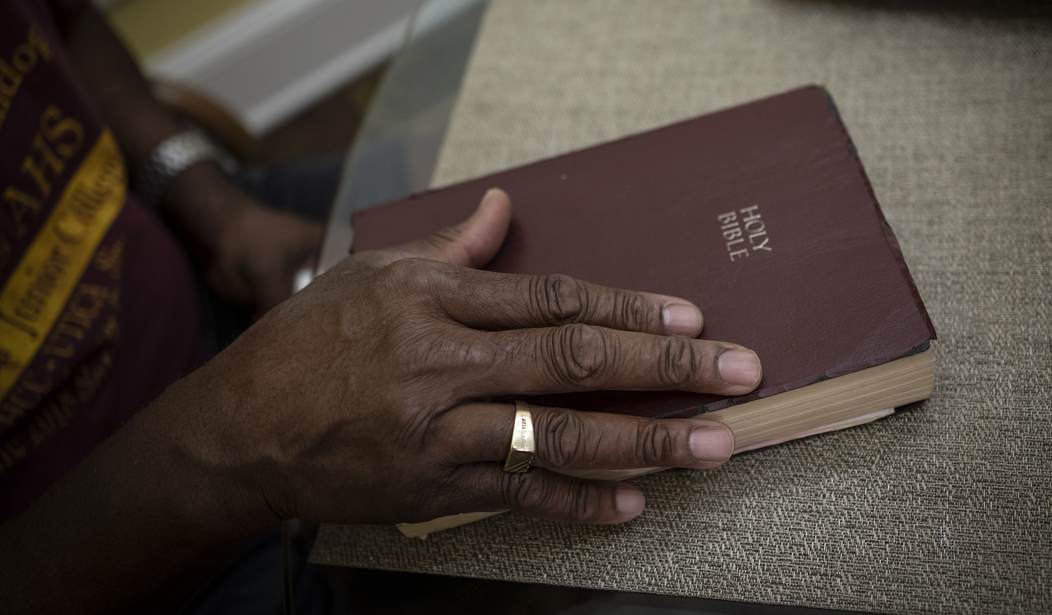Author’s Note: Interested readers can find all previous volumes of this series here.
Welcome to our Bible study and to a community of readers/commenters who passionately share, compare, and contrast their biblical knowledge and insights.
Today we begin a two-part series on prayer in the Hebrew Bible/Old Testament, and next week, the New Testament — starring Jesus, who taught his disciples how to pray. Both Testaments offer inspiring prayers that have comforted humankind since ancient times.
The first time prayer was alluded to was in Genesis, the first book of the Hebrew Bible. I write “alluded to” because the word “prayer” does not appear in the verse:
“Adam made love to his wife again, and she gave birth to a son and named him Seth, saying, ‘God has granted me another child in place of Abel, since Cain killed him.’ Seth also had a son, and he named him Enosh. At that time people began to call on the name of the Lord” (Genesis 4:25-26).
Although the word itself is absent, the meaning of the prayer process — behavior and thinking required to achieve the desired outcome — is defined in the verse “people began to call on the name of the Lord.”
Calling on the name of the Lord necessitates an ongoing relationship built on praise and trust. Fundamental to that relationship is believing and acknowledging that He is Almighty God, Creator of the universe, and you are not. Psalm 139:13 reads: “For you created my inmost being; you knit me together in my mother’s womb.”
And since God knows your past, present, and future, He knows your prayer needs before the thoughts are formulated in your mind.
Recommended
While researching this study, I found a lesson titled “The Most Powerful Prayers In The Bible” by Maricris Navales. Under the sub-head, “Applying the Bible Prayer to Your Daily Life,” she wrote, “This world will not define our identity but God. Our value and worth are secure in Him. Our God knows us better than anyone else, even ourselves. We can trust and hold on to his sovereignty. We can come to God in our most vulnerable state. And he can turn our weakness into his glory.” (For more about “weakness” and prayer, refer to Vol. 71.)
Since this is a “quick” Bible study, I have selected a handful of Old Testament prayers to help build or strengthen your relationship with God.
Found in 1 Samuel — the ninth book of the Hebrew Bible — the outcome of Hannah’s prayer profoundly impacted the leadership of ancient Israel. Hannah was so distraught about her childless state that she “made a vow” to the Lord:
“In her deep anguish Hannah prayed to the Lord, weeping bitterly. And she made a vow, saying, ‘Lord Almighty, if you will only look on your servant’s misery and remember me, and not forget your servant but give her a son, then I will give him to the Lord for all the days of his life, and no razor will ever be used on his head’” (1 Samuel 1:10-11).
God granted her request: “So in the course of time Hannah became pregnant and gave birth to a son. She named him Samuel, saying, ‘Because I asked the LORD for him’” (1 Samuel 1:20).
Are there any prayer “vows” you want to make before God so He will grant your prayer request?
Samuel grew to be a revered priest, judge, and prophet in ancient Israel. He is best known for God speaking to him, starting when Samuel was only a boy. On behalf of God, Samuel anointed Saul, and later David, as Israel’s first two kings. Samuel always heard and facilitated God’s will, intervening whenever Saul and David strayed off course.
Next, we discuss the prophet Jonah and the “whale” recorded in the book of Jonah. This is a prayer lesson about the consequences of disobedience to God’s will. If unfamiliar to you, one of the Bible’s most famous stories is in Jonah 1, continuing into Jonah 2.
A brief synopsis: God called Jonah to travel to Nineveh and prophesize, but instead, Jonah ran away to the sea. God sent raging storms, and Jonah knew that he was responsible for risking the lives of all aboard the boat. Thus, Jonah convinced the sailors to throw him overboard as a sacrifice to God. They complied, but God did not want Jonah to drown. Jonah 1:17 reads:
“Now the LORD provided a huge fish to swallow Jonah, and Jonah was in the belly of the fish three days and three nights.” (In the retelling, this fish story became a whale story.) While inside the “huge fish,” Jonah makes vows, pleads to God for his life and that is why Jonah 2 is called “Jonah’s Prayer.” Here are the two end verses:
“When my life was ebbing away, I remembered you, Lord, and my prayer rose to you, to your holy temple. “Those who cling to worthless idols turn away from God’s love for them. But I, with shouts of grateful praise, will sacrifice to you. What I have vowed I will make good. I will say, ‘Salvation comes from the Lord’” (Jonah 2:7-9).
The Lord responded positively to Jonah’s vows: “And the LORD commanded the fish, and it vomited Jonah onto dry land” (Jonah 2:10).
In case you haven’t noticed, there is much prayer drama in the Old Testament.
We end today’s study with a quick glance at Psalms — the mothership of prayer chapters — since all 150 Psalms are prayers.
Among the most familiar is Psalm 23, often read at funerals and historically prayed by soldiers in harm’s way. It begins: “The Lord is my shepherd; I shall not want. He makes me to lie down in green pastures; He leads me beside the still waters. He restores my soul...” (See Vol. 36 for a World War II connection.)
Also of immense comfort is Psalm 91, known as the “prayer of protection.” Studied in Vol. 10, this magnificent, poetic Psalm is a dialogue between God and Man. God offers a blanket of protection against a host of maladies (including plague and pestilence) to anyone who believes and worships Him. No prayer could be more relevant for today.
Psalm 91 begins: “Whoever dwells in the shelter of the Most High will rest in the shadow of the Almighty. I will say of the Lord, ‘He is my refuge and my fortress, my God, in whom I trust’” (Psalm 91: 1-2).
Now and forever, the Bible is the supreme book of prayer. Amen!
Myra Kahn Adams is a media producer and conservative political and religious writer with numerous national credits. She is also Executive Director of SignFromGod, a ministry dedicated to educating people about the Shroud of Turin. Contact: MyraAdams01@gmail.com or Twitter @MyraKAdams.

























Join the conversation as a VIP Member